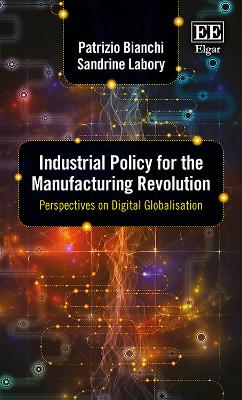The fourth industrial revolution is having a major impact on industry and societies primarily because of what has been called its raw material: data. New technologies are allowing hyper-connection on a global scale, not only between people, but also between people and machines and, in the case of the Internet of Things, even amongst machines themselves. This book offers a critical reflection on the meaning and expected consequences of the fourth industrial revolution, with a particular focus on the advent of digital globalisation and its implications for industrial policy. Industrial revolutions are considered not only in terms of technological progress, but also in the context of the changing relationship between market and production dynamics, and the social and political conditions enabling the development of new technologies.Industrial Policy for the Manufacturing Revolution aims to increase our capacity to anticipate and adapt to the forthcoming structural changes. It outlines the type of industrial policy and strategies that are needed in this era of rapid transformation. The authors propose a 'comprehensive industrial policy' that considers the complexity of structural changes involving industry as well as institutions and social and education policies, in order to encourage the participation of all citizens in the development process. The book also features a concrete example of comprehensive industrial policy implementation at the regional level.
This stimulating and thoughtful book makes the case that industrial policies are more vital than ever, particularly now as the economy undergoes a technological revolution. It will be required reading for all those interested in industrial economics and policy, business and technology.
- ISBN10 1789905273
- ISBN13 9781789905274
- Publish Date 28 June 2019 (first published 29 June 2018)
- Publish Status Active
- Publish Country GB
- Imprint Edward Elgar Publishing Ltd
- Format Paperback
- Pages 192
- Language English
